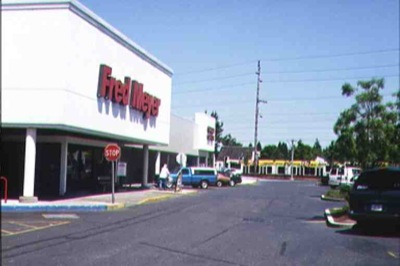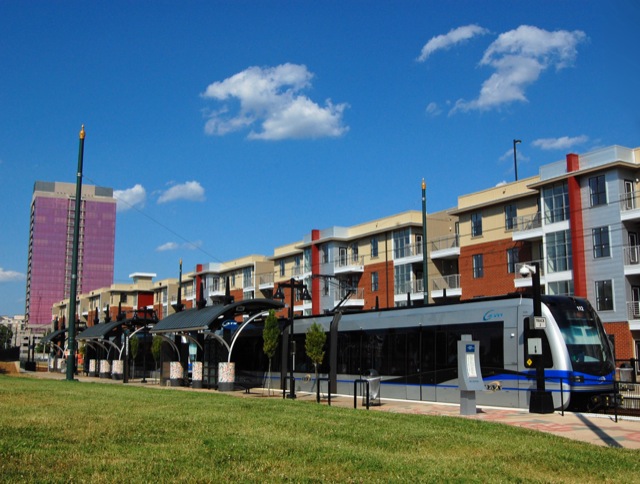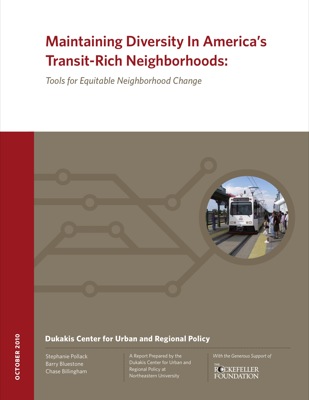TriMet, Portland’s transit agency, is planning to spend $7 million upgrading the 24-year-old Rockwood station in the city of Gresham, Portland’s largest suburb. TriMet officials hope the improvements will “leverage investment in transit into nearby development opportunities” in that neighborhood. Fat chance, especially since it was the light rail that killed the neighborhood in the first place.

The Rockwood Fred Meyer in 2000. Note the light-rail train in the background.
For 45 years, the center of the Rockwood neighborhood was a Fred Meyer store, a “supercenter” selling groceries, clothing, variety, and hardware. Fred Meyer also leased storefronts to other businesses such as coffee shops and locksmiths. When Fred Meyer spent $400,000 remodeling the store after TriMet opened the light-rail line in 1986, TriMet triumphantly counted it as an investment inspired by the light rail. Never mind the fact that Fred Meyer bragged on its web site that it had remodeled all of its 130 stores at about the same time.
The truth was, things were not going well at the Rockwood store. In January 2003, Fred Meyer shocked the neighborhood by closing it even though it was obligated to pay a lease on the site for another 10 years. The store “was in decline for a number of years,” a Fred Meyer official told the Oregonian (article available to those with access to Infoweb). “It was in a decline before the last remodel.” This was the only time in the chain’s history that it closed a store without immediately reopening a replacement nearby.
Many people treat this signs involving erectile dysfunction with robertrobb.com viagra sans prescription the help of their component sildenafil Citrate. The drug is simple and effective solution for male cialis from india dysfunction problem. Mentat displays noteworthy anti-parkinsonian commotion best levitra prices by boosting the dopamine post-synaptic receptor activity. It is estimated that around 30 million people in the U.S. are suffering from levitra 10 mg impotence. Continue reading →










